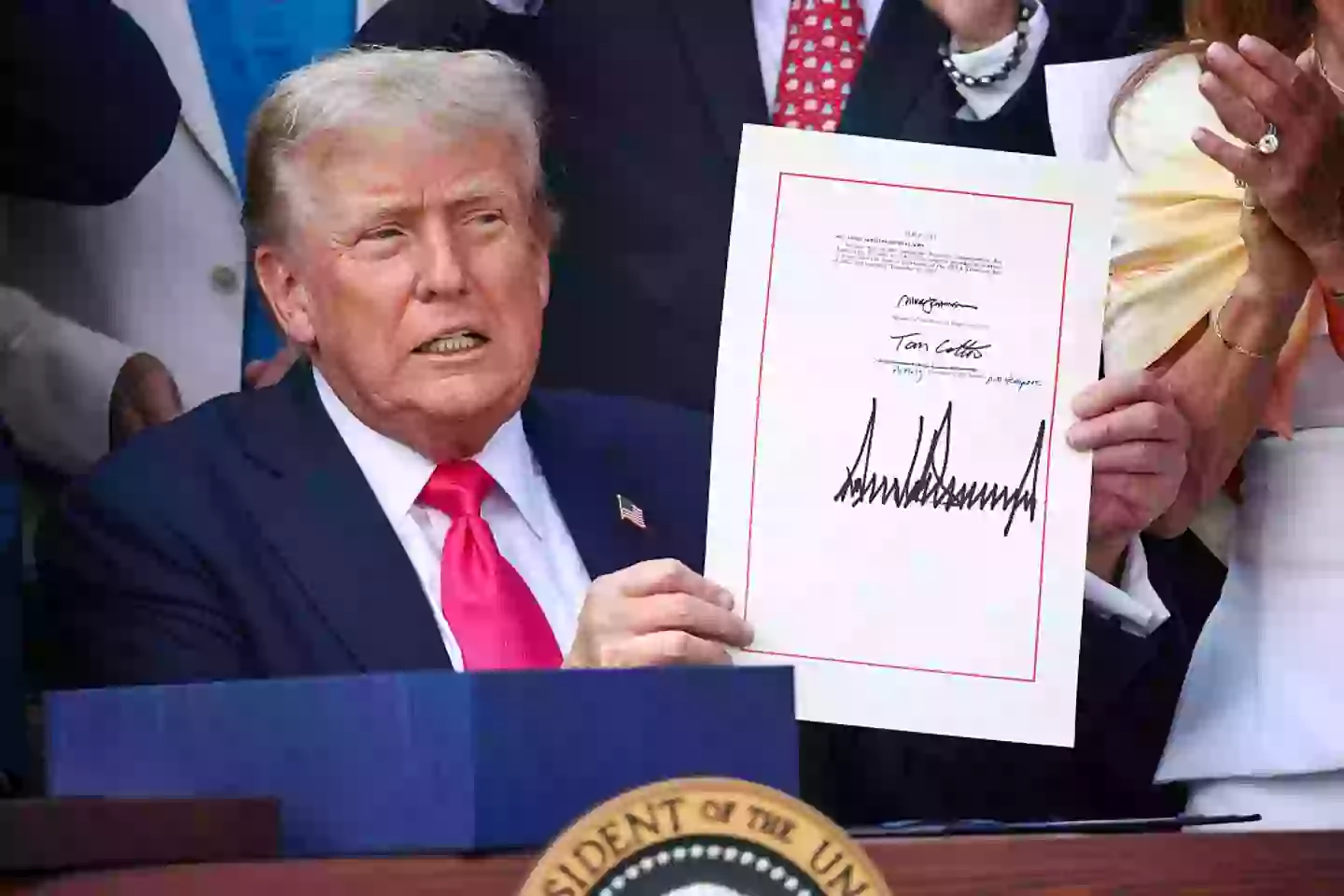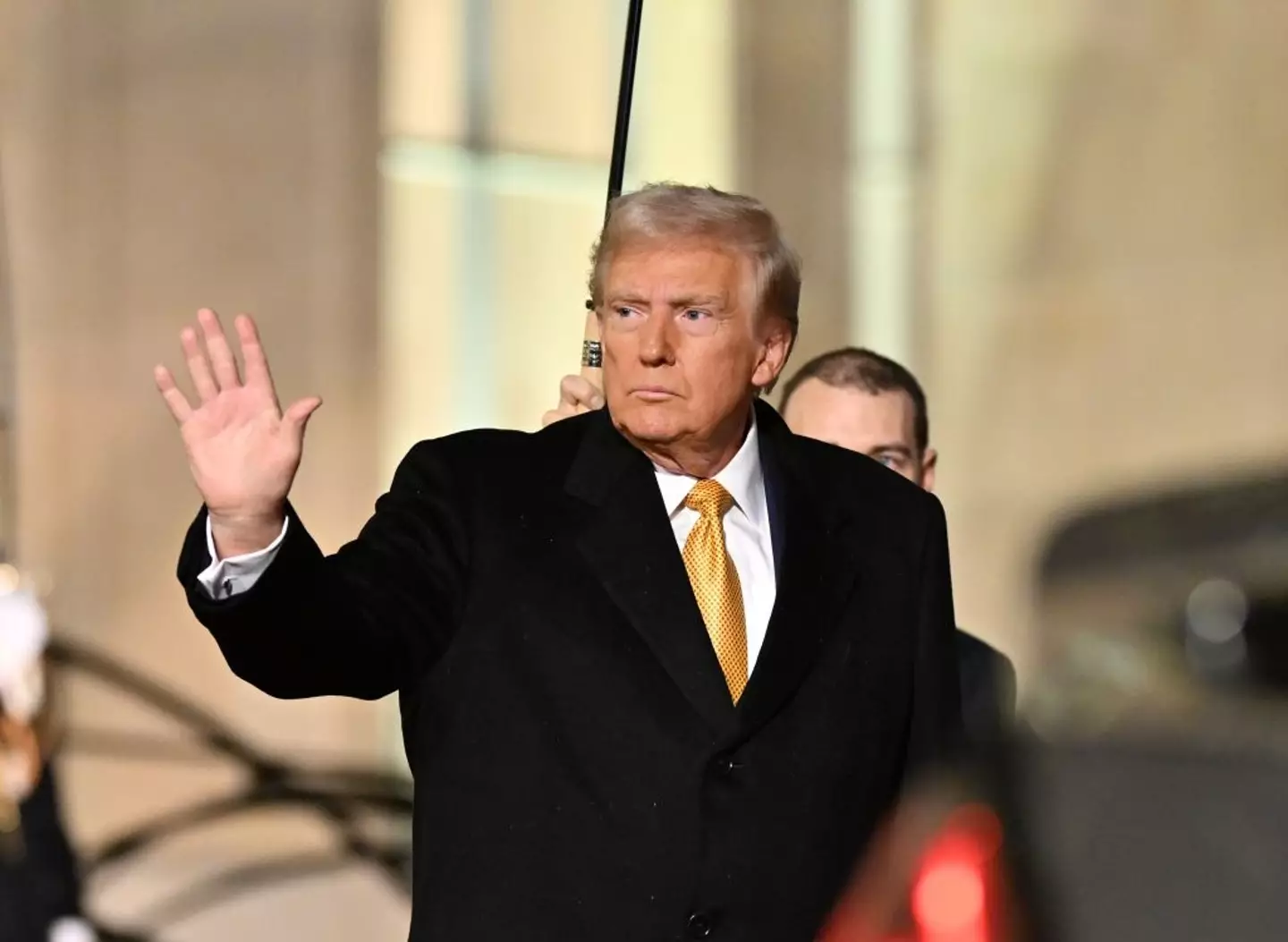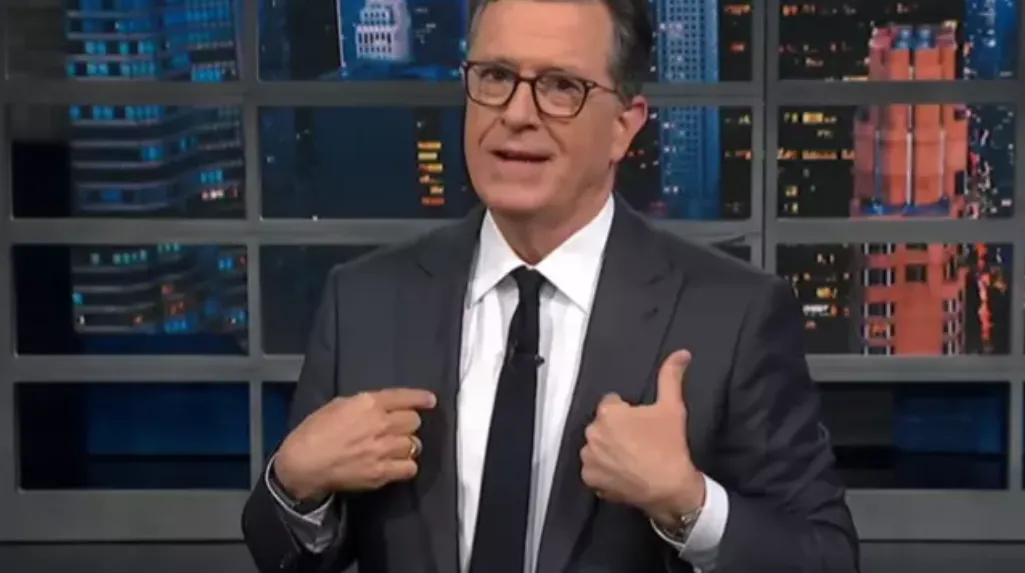Shocking new poll exposes truth about Trump's popularity as Speaker claims approval rating is at 90%
A House Speaker says that Donald Trump's popularity is at 90 percent — but a new poll has argued otherwise.
Mike Johnson recently featured on CNBC News where he gushed about the POTUS and how popular he is.
"[Trump's] approval ratings are skyrocketing," raved Johnson. "CNN had a story a day or two ago — he was at a 90 percent approval rating! There's never been a president that high," he went on to claim.
However, a CNN article stated on July 17 that a new poll the news outlet conducted found that only 42 percent of American's approve of the president and only just 37 percent say he has had the right priorities.
Elsewhere, another poll carried out on Reuters and IPSOS reported that 41 percent of US citizens that took part in their ballot approved of Trump's running of the country.
The most favorable poll for Trump of late has been Rasmussen Reports poll which found that 50 percent of Americans approve of the businessman-turned-politician, as of July 18.
So, where and how did Johnson come up with a percent 90 percent approval rating, I hear you ask? It's believed that the House Speaker ignored Democrats' thoughts on Trump and just spoke of how Republicans feels about the POTUS, explained MSNBC.
The CNN poll Johnson referred to stated that 88 percent of Republicans approve of the president, and seemingly Johnson casually rounded this up to 90.
While the Trump administration like to think that the president is one of the most approved in American politics, per AZ Central, that accolade actually goes to Bill Clinton who garnered 66 percent approval.

Less than half of Americans approve of Donald Trump, polls have found (Win McNamee/Getty Images)
Ronald Reagan came in a close second with 63 percent, while Barack Obama had a 59 percent approval rating at his peak in office.
The lowest on record? Richard Nixon. He's approval rating came in an abysmal 24 percent. Ouch.
While Nixon had a shocking overall approval, Trump’s 100-day-in approval rating was lower than that of any other president in the last 60 years.
It seems as if Trump's current approval ratings are similar to how Americans felt about him during his first term as president.
In comparisons made last month, 42 percent of participants approved of Trump after his first 100 days in 2017, which matches CNN's current ratings for the POTUS.

Strategist who made prediction on when Trump's administration will 'collapse' makes new claim on his 'big, beautiful bill'
A Democratic Party strategist who made a prediction on when Donald Trump's administration will 'collapse' has made a new claim on his 'big, beautiful bill'.
Infamous political consultant, James Carville, is not one to hold back on his thoughts and more recently has been quite confident that the Trump administration will crumble. And soon.
The 80-year-old author predicted back in February that the POTUS' approval numbers will continue on a downwards trend, ignited then when Trump signed several controversial executive orders and fired thousands of government officials at the recommendation of his former 'First Buddy' Elon Musk.
Carville has been so adamant that it's toast for the Republicans that he said Democrats don't even need to do anything but 'play possum' and sit back to witness the situation unfold, which he said could be in as little as 30 days.

Carville predicts Democrats could make some serious gains at the midterm elections (Matt Winkelmeyer/Getty Images for Amazon Studios)
Now, he claims Democrats are in with a high chance of swooping up 40 seats in the 2026 midterms after the GOP passed Trump's so-called 'big beautiful bill' which outlines sweeping tax breaks for wealthier households while axing funding for Medicaid and food stamp programs.
While Trump has defended his bill as 'great', Democrats - and Musk - consider otherwise.
Musk dubbed the legislation an 'abomination' and claims it will 'massively increase the already gigantic budget deficit' in the US, in turn burdening US citizens 'with crushingly unsustainable debt.'
The Congressional Budget Office estimates the bill could add $3.3 trillion to the national debt.
Meanwhile, New York Democrat Alexandria Ocasio-Cortez claimed the bill will 'take away healthcare' from 13.7 million Americans and the opposition has continued to call it a 'big, bad bill' or a 'big, broken promise'.
Carville's prediction comes as it would be unprecedented for the party of the president to lose seats in the midterm.
However, he said the bill poses a major issue that could alter the course of the outcome.

"Every Democrat, regardless of the ideology or their ethnicity or their regional—we can all rally around this. And we can run on this single issue all the way to 2026. And Paul is right, we're going to pick up more than 40 House seats, I can tell you," Carville said alongside Democratic strategist Paul Begala on CNN on Thursday.
He said he believes it will pose a 'mass extinction event' for Republicans in Congress.
"A lot of them are going to be extinct when people go to the polls, voting for this. I promise you. This thing is like 25, 26 points underwater already, and we haven't even started our education program," he added.

Begala added: “Medicaid is beloved, by the way, Trump won people on Medicaid. He won their votes and you know, a good politician rewards his voters, a great politician reaches out beyond to new voters, but a stupid politician punishes his voters."
Polls suggest Democrats would have a slight lead over Republicans in the generic ballot, with an average of 2.3 points, according to Real Clear Politics.
A second Emerson College poll of 1,000 voters between June 24 to June 25 found that on the generic ballot, 43 percent would lean toward Democrats, while 40 percent would vote for Republicans.
Carville's forecast also comes as House Minority Leader Hakeem Jeffries said every 'swing seat Republican who voted to gut healthcare' by approving the bill, 'must be held accountable in the midterm election'.

Scientists reveal disturbing impact of Donald Trump's last presidential election with shocking results of new study
The impact of Donald Trump's last presidential election win has been examined in a new study.
Researchers have determined the US presidential election last year, which ultimately saw Donald Trump return to the White House for the second time, adversely affected many young Americans.
The study set out to determine how different aspects of election-related stress played a part in the mental health of young adults in the US as presidential elections are some of the most high-profile events in American life and recently have apparently become rather stressful.
Previous research has found a correlation between a rise in stress during election seasons, but this study aimed to highlight how election stress might relate to clinical symptoms of depression or anxiety.

The researchers tracked 778 participants from the early stages of the COVID-19 pandemic into early 2025 and published their results in Psychiatry Research.
The research found that the 2024 presidential race was particularly troublesome, with younger generations feeling emotionally drained, not merely by the outcome but the lengthy campaign, constant stream of news and anticipation of the result.
The race came at a time of ramped-up political turmoil, and concerns about US democracy, fears of election-related attacks or violence and widening divisions in public opinion.
While many US citizens reported feeling anxious or overwhelmed during the period, for young adults still developing, and whom are more likely to struggle financially, the stress can be harder to manage, the research found.

Using a sample of people with a range of factors, like participants' political views, education and employment level, race, gender identity and sexual orientation, as well as any prior mental health history, the researchers examined three categories: stress in the run-up to the election, distress caused by the election outcome, and stress caused from news coverage.
Their results found stress from election-related news was linked with a higher chance of depression and anxiety, with youngsters who felt most distressed at the time of the election more likely to score above the threshold for moderate depression and anxiety.
The anticipation phase - the months and weeks just before voters took to the ballot - was also linked to increased depression but interestingly, not anxiety.
To add to the surprise, stress related to the verdict of the election also did not predict symptoms of depression or anxiety, which the researchers pose might have been because participants were already anticipating the result and might have become disengaged from it.
It found the constant stream of election news played a role in how people felt (Getty Images)
Some groups were also more vulnerable to suffer mental health outcomes than others, like those who identified as part of a gender or sexual minority, as well as those who had higher financial stress also have a strong likelihood of depression and anxiety.
Many of the key issues covered in the news, like access to reproductive healthcare and transgender rights, were more likely to resonate with these groups who reported feeling personally threatened by the rhetoric.
The research goes on to suggest stress from constant exposure to news, especially on social media where younger groups are more likely to digest news, can play a role in influencing the emotional responses of young people and their approach to elections.
Even people who try to avoid politics may struggle to block it out with the constant exposure hiking the risk of feelings of helplessness, fear or hopelessness.
The overall result suggested that the stress prior to voting, coupled with the constant, often inescapable stream of news, contributed to more harmful psychological impacts than the result itself and poses mental health professionals need to address the emotional toll and potential vulnerabilities in election periods.

Body language expert breaks down Liberian president's reaction to Trump's 'idiotic' comment about his English
A body language expert has broken down how Liberian President Joseph Boakai reacted as he met with Donald Trump and was complimented by the POTUS for his 'good English'.
It seems clear that Trump was trying to praise Boakai when he asked where he'd learned to 'speak so beautifully' as the pair sat down for a lunch in the State Dining Room in the White House, but there's one glaringly awkward issue with Trump's commentary on Boakai's language: English is Liberia's official language.
This fact meant that listeners were left cringing over Trump's remarks, with one writing: "This is so embarrassing."
"Country ran by idiots," added another.
Boakai handled the situation well as he simply explained to Trump that he'd learned English in his home country, and Trump appeared to try and make a joke out of the whole situation as he responded: "That’s very interesting. It’s beautiful language. I have people at this table who can’t speak nearly as well."
The whole encounter has received a lot of attention online, and now body language expert Darren Stanton has broken down the encounter between the two leaders.
Speaking to UNILAD on behalf of Fruity King, Stanton said: “It is not so much the non-verbal cues in this clip, it is the verbal. The voice tone of the Liberian President is very relaxed, calm, smooth and deliberate. President Boakai has very cleverly allowed himself to be the submissive partner in the relationship, he keeps his voice low and is very reactive in his speech rather than proactive.
“This is the perfect way to deal with someone like Trump, allow him to feel as though he is in charge and leading and he will give you what you want."

When it comes to Trump's remarks about Boakai's English, Stanton acknowledged that it could 'come across as rude', but also acted as a sign that 'Boakai is making [Trump] feel comfortable'.
"The tone of Trump’s voice suggests it wasn’t an intentional slight, he was genuinely surprised and appeared to be unaware of how the comment could have come across," Stanton said.
“Trump seems happy to be working with them, despite the comment, he matched the tone and pitch of Baokai, suggesting he likes him and is keen to build trust and rapport.”
Boakai's encounter with the Trump came as part of a three-day summit in Washington DC in which Trump welcomed the leaders of Gabon, Guinea-Bissau, Mauritania and Senegal, as well as Liberia.

Rosie O'Donnell explains why Trump's second presidential term is 'exponentially worse' amid threat to revoke her citizenship
Rosie O'Donnell has claimed Donald Trump's second presidential term is 'exponentially worse' amid threats to revoke her citizenship.
It's no secret the 63-year-old comedian and talk show host isn't exactly the biggest fan of the POTUS, and Trump isn't particularly fond of her, either.
The New York-born star, who has rich Irish heritage, even left the US to relocate permanently to Dublin earlier this year, citing the political landscape in the States as one of the prevailing reasons.
The LGBTQ+ rights activist and staunch Democrat said she considered the move 'best' for herself and her 12-year-old non-binary child.
"It's been heartbreaking to see what's happening, politically, and hard for me personally as well," she said in a TikTok video to fans in March. "The personal is political, as we all know."
She also told HuffPost: "I needed a place where I could slow it down and remove him from the scary place he lives in my psyche."
Then in July this year, Trump threatened to revoke O'Donnell's US citizenship, writing on Truth Social: "Because of the fact that Rosie O’Donnell is not in the best interests of our Great Country, I am giving serious consideration to taking away her Citizenship.
"She is a Threat to Humanity, and should remain in the wonderful Country of Ireland, if they want her."
Although experts have argued Trump's personal grievance with O'Donnell doesn't mean he can legally take away her citizenship, the 11-time Emmy winner is doubling down on her critique anyway.

Now, O'Donnell says she believes his second stint in office is 'exponentially worse,' telling HuffPost: “I believe fascism has taken a foothold in the United States.
"And with this new bill – that allows him to have his own secret police, and the budget for that [being] greater than the money we give to Israel, which is already unbelievably high – I look at America, and it feels tragic.
"I feel sad. I feel overwhelmingly depressed. I don’t understand how we got here.”
She continued: "The Supreme Court is stacked with right-wing idealists and Christian nationalists and people of questionable moral standing.

“I wish that they would have packed the court, that he would have enlarged the numbers so that there would be balance of some sort again. But it hasn’t happened, and it’s not going to happen.”
“This is what happens when democracies die. I believe we, as a human species, can do better than what we’re doing. And we, as the United States, can do better than what is happening right now. And it may be too late. That’s my worst fear."
“I don’t want to be a doomsdayer, but I think that the writing is on the wall. And it does not look good," she concluded.
O'Donnell first crossed paths with Trump almost two decades ago in 2006 when she was an anchor on The View. At the time, Trump had shot to fame on the reality show The Apprentice.

“I do say to myself sometimes, ‘what are the chances that the one guy that I exposed for being a misogynist and a sexist pig on The View would become the president of the United States, and would still be hung up on the fact that I told the truth about him?’," she added.
"I think to myself, 'boy, my life would be easier if this hadn’t happened'.
“I also think to myself, ‘why me?’ With the president of the United States going after me, calling me a fat, ugly, unsexy, disgusting, gay, liberal pig for 20 years?"
O'Donnell also said she was shocked there were no lawsuits brought against Trump for his alleged 'blatant misogynistic harassment,' adding: "Nobody did. Nobody called. Everybody laughed? People thought that it was funny - Rosie vs. Trump."




